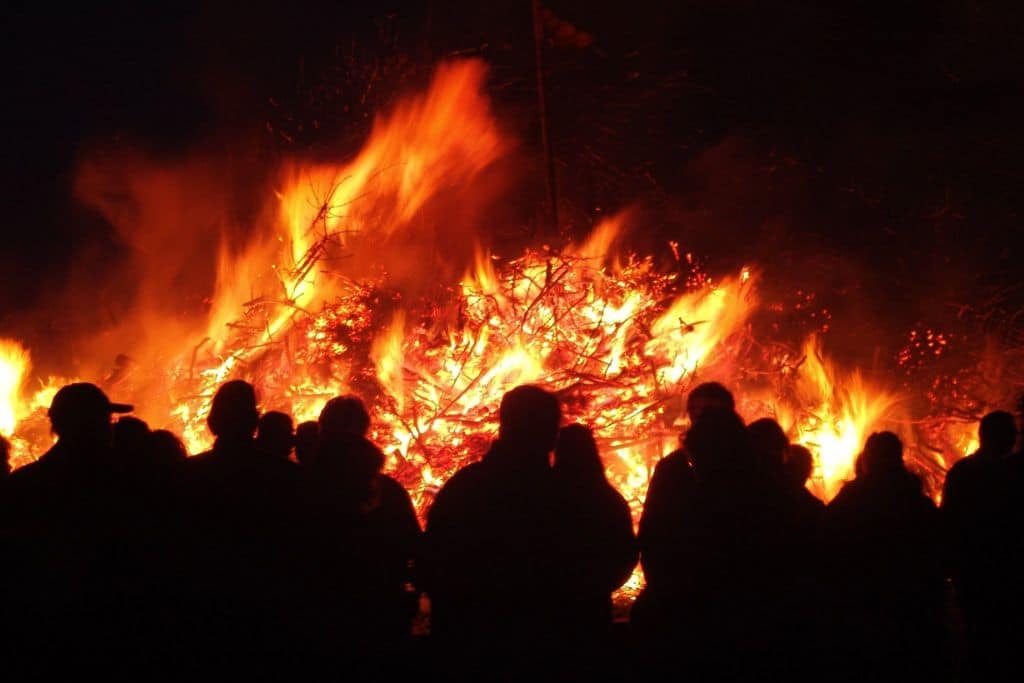Climate fires pose a major danger to public health. Those impacted by wildfires suffer from increased instances of mental health conditions. Wildfires also have a direct impact on the physical health of those who live through them. Communities that face these wildfires are also more likely to struggle through strained healthcare resources. This article examines the mental and physical health toll climate change-attributed wildfires create among the public as well as other strains this kind of natural disasters cause.
—
Introduction
According to the Environmental Protection Agency (EPA), the wildfire season is lasting longer, burning stronger, and covering greater areas. A large part of these changes can be attributed to climate change, which has produced warmer springs, drier summers, and more tinder-like vegetation.
The impact of climate fires extends beyond environmental damage. Climate fires pose a danger to public health, strain health providers’ resources, and even increase insurance rates. This is an exploration of those dangers and strains.
You might also like: What Causes Wildfires?
In What Ways Do Climate Fires Impact Public Health?
1. Mental Health
Living through a wildfire is extremely distressing. At a certain point, large wildfires become unmanageable, and evacuation policies must be used to prevent loss of life. For those in the path of the wildfire, the impact on mental health can be profound even if they leave the area long before the wildfire hits.
Recent research shows that, following a wildfire, those who were affected experience an “increased rate of PTSD, depression, and generalised anxiety.” This is hardly surprising, given the devastating impact that wildfires can have on communities, jobs, and local infrastructure.
Wildfires can also undermine the stability of our homes and the health and well-being of pets. Just like humans, pets can suffer from respiratory illnesses caused by wildfires. Pets can also become stressed by loud noises and strong smells. This is a serious issue, as many people bring pets into their lives to help mitigate stress and improve their mental health.
2. Physical Health
The smoke and heat caused by wildfires can have serious negative impacts on people’s physical health – even if they live hundreds of miles away from the flames’ source. Worryingly, in the US, air quality warnings have become a regular occurrence for those who live in, or neighbour states with frequent wildfires.
You might also like: 15 Most Polluted Cities in the US
The Centers for Disease Control and Prevention (CDC) explains that wildfire smoke contains “particulate matter, carbon monoxide, nitrogen oxides, and various volatile organic compounds.” Breathing in this air can lead to increased cardiovascular hospitalisations and exacerbate conditions like asthma, bronchitis, and chronic obstructive pulmonary disease (COPD).
The long-term impact of wildfire exposure can be damaging, too. Studies show that exposure to wildfire correlates with increased chronic and life-threatening illnesses. Models that are used to study public health spending found that, between 2008 and 2012, the US spent roughly $63 billion treating those who had lingering symptoms and illnesses due to wildfire exposure.
Such illnesses and symptoms associated with wildfire exposure range from pesky at the best, to deadly at worst. Recent research in the British Medical Journal also suggests that those who are exposed to air pollution may be at increased risk of developing autoimmune disease. The BMJ article states that exposure to air pollution can trigger adaptive immunity. The body, attempting to counteract disease-causing entities, can misfire and produce “systemic inflammation, tissue damage, and ultimately autoimmune disease.”
Although more research is necessary to understand the long-term impact of wildfires, we are already seeing the impact of increased climate disasters on global infrastructure.
3. Global Infrastructure
Public health will falter without reliable production, supply chains, and access to basic goods and foods. Fortunately, globalisation creates a more robust supply chain system, as it increases operational efficiencies and has the potential to produce more equitable resource sharing.
However, globalised infrastructure can be undermined by climate disasters like wildfires. This is particularly apparent today, as the global supply chain network is still recovering from COVID-19 but is vulnerable to the threat of wildfire.
For example, in British Columbia, an unprecedented heat wave sparked the province’s third-worst wildfire season. These wildfires resulted in a supply bottleneck in Fraser Canyon, where railcars stood idle while waiting for the fires to pass. This had a knock-on impact on the cost of essential building materials, as the cost of logging rose dramatically.
Failing supply chains devastated public health, as they exacerbated existing inequalities and scarcity. Those who live in a food desert due to globalisation will find it even harder to find healthy food following a wildfire. Likewise, those who rely on regular medication and shipments may find that their access to medication becomes less regular and reliable. This can have a knock-on impact on health care.
4. Healthcare
Responding to wildfires can derail healthcare providers’ daily operations and jeopardise public health. Helping patients who present wildfire-related symptoms requires hospitals to shift their priorities and focus on those most in need.
Wildfires can also have a lingering impact on healthcare months after fire season ends. This reality is underlined by Dr. Erin Landguth, Associate Professor at the University of Montana. Dr. Languth’s research shows that the influenza season in Montana was four to five times worse after a bad wildfire season.
Speaking to PEW, Dr. Landguth reflected that “We know that hospitalisations for asthma and other respiratory conditions spike within days or weeks of wildfires,” but the idea that wildfire could increase lasting, later effects like influenza is cause for serious concern.
Resources used for healthcare are also placed under strain following a wildfire. Costly N95 and KN95 masks are needed to reduce the impact of breathing in wildfire smoke, but these masks can be expensive. A coordinated approach to public health care is needed to ensure that vulnerable populations can gain access to the PPE they need following a wildfire.
Conclusion
Climate fires are a serious issue for a warming world. Wildfires place serious strain on public health resources, as those who live nearby wildfires will likely need a range of physical and mental health treatments. Wildfires also threaten to undermine global supply chains, which are required to ensure that everyone has equitable access to food, safe water, and basic goods. Without a change in direction, climate fires could become an ever-present threat to public health around the world.
You might also like: The Impact of Wildfires on Biodiversity and the Environment


















